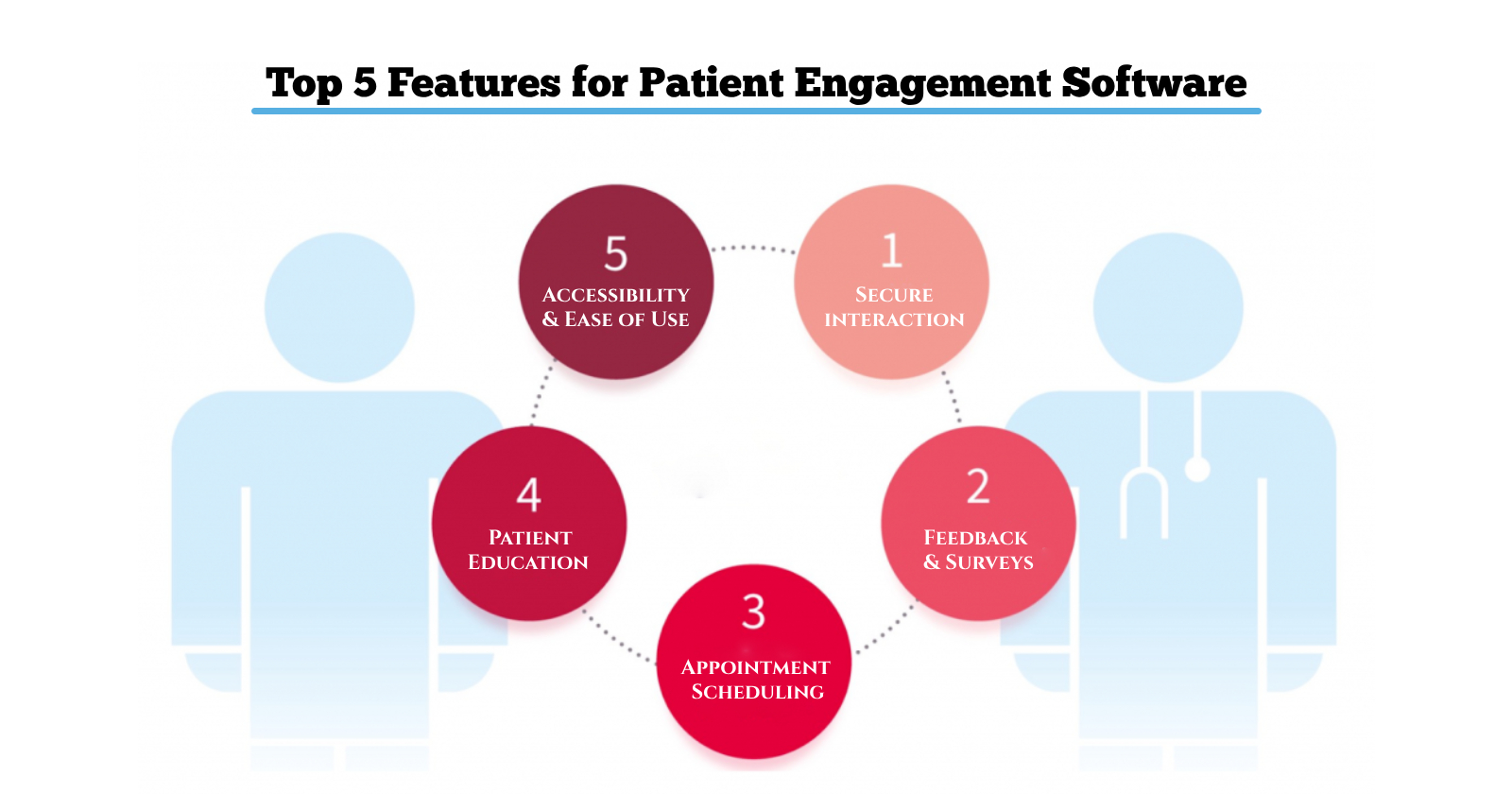Top 5 Features to Look for in Patient Engagement Software
 Sofia Murphy
Sofia Murphy
In today's healthcare world, connecting with patients goes beyond just medical treatment—it's about building relationships and empowering patients to take charge of their health. That's where patient engagement software comes in. It's not just a tool; it's a way to improve how healthcare providers interact with patients, making healthcare more accessible, efficient, and personal.
1. Accessibility and User-Friendliness
Imagine trying to navigate a confusing website or app when you're already stressed about your health. Patient engagement software should be easy to use for both patients and healthcare providers. It should work seamlessly on mobile devices because, let's face it, we're all glued to our phones. Plus, it should support different languages so everyone feels comfortable communicating, regardless of their native tongue.
Research shows that when software is user-friendly and accessible, patients are more likely to engage with it and take an active role in managing their health.
2. Secure Communication Tools
Privacy matters, especially when it comes to personal health information. That's why patient engagement software needs to have robust security features. It should use encrypted messaging to protect sensitive data and comply with regulations like HIPAA. Integration with Electronic Health Records (EHR) is also crucial for sharing information securely between patients and providers.
Studies highlight that secure communication tools not only build trust but also improve patient satisfaction by ensuring their information stays private and protected.
3. Appointment Scheduling and Reminders
We've all experienced the frustration of forgetting an appointment or waiting weeks for a slot that works. Good patient engagement software streamlines this process. Patients should be able to book appointments online easily and receive reminders via text, email, or notifications on their phones. For healthcare providers, having a system that syncs with their calendars helps them stay organized and reduces scheduling conflicts.
Recent findings suggest that automated reminders significantly decrease no-show rates and improve overall patient experience by keeping everyone on track.
4. Patient Education and Health Information
Knowledge is power, especially when it comes to health. Patient engagement software should offer a wealth of resources—videos, articles, personalized advice—so patients can learn more about their conditions and treatments. When information is tailored to their needs and preferences, patients feel more confident making decisions about their health.
Research underscores that well-informed patients are more likely to stick to treatment plans and achieve better health outcomes.
5. Feedback and Survey Tools
Listening to patients is crucial for improving healthcare services. Good patient engagement software includes tools for gathering feedback through surveys and forms. Analytics help healthcare providers understand what patients are saying and track satisfaction levels over time. This data-driven approach allows them to make improvements that really matter to patients.
Studies reveal that collecting and acting on patient feedback not only enhances care quality but also strengthens the patient-provider relationship.
Conclusion
Choosing the right patient engagement software isn't just about checking boxes—it's about creating a better healthcare experience for everyone involved. By prioritizing features like accessibility, secure communication, appointment scheduling, patient education, and feedback tools, healthcare providers can build stronger connections with patients, improve outcomes, and ultimately make healthcare more human.
In the end, investing in patient engagement software isn't just a smart move for compliance; it's a commitment to delivering care that's compassionate, efficient, and patient-centered in today's healthcare landscape.
Subscribe to my newsletter
Read articles from Sofia Murphy directly inside your inbox. Subscribe to the newsletter, and don't miss out.
Written by

Sofia Murphy
Sofia Murphy
I am Sofia Murphy, a mobile apps consultant. I voluntarily write blogs on mobile apps architecture, design, UI/UX, product engineering, and programming languages.